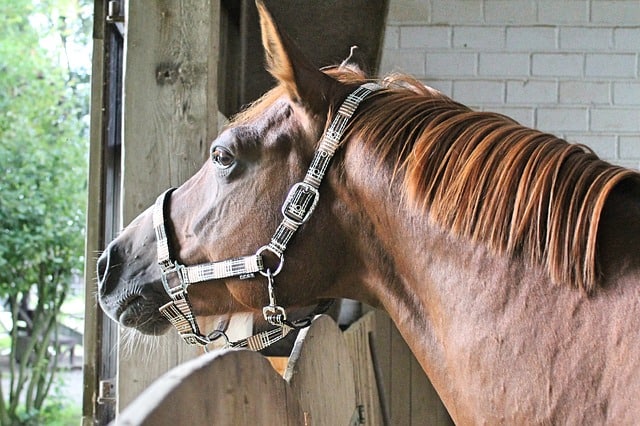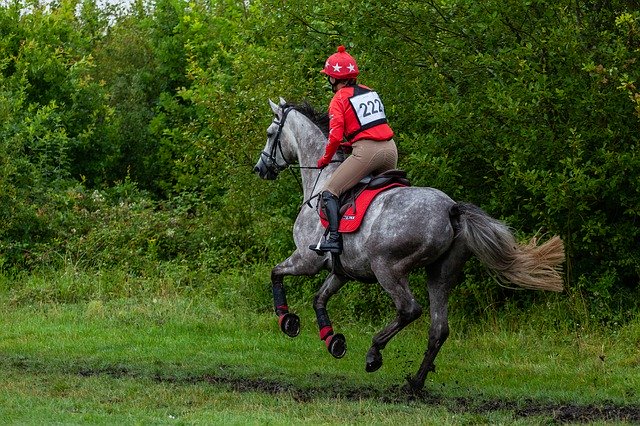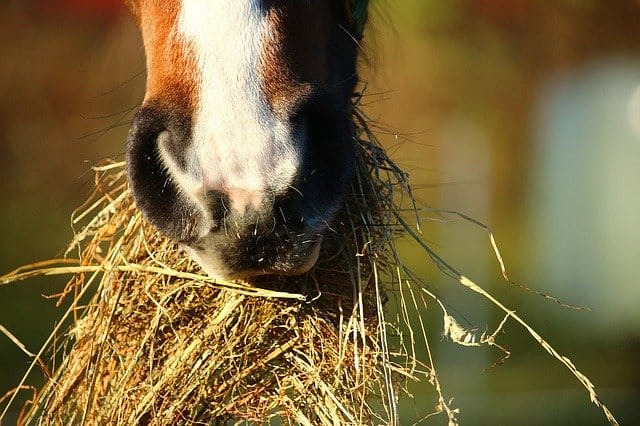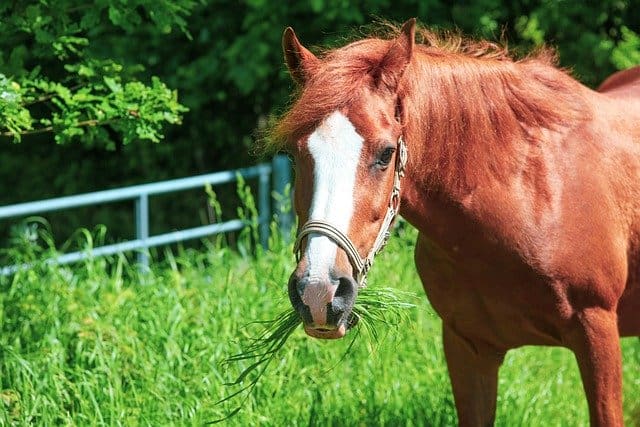Feed Supplements for Horses.
Many horse owners feed supplements to their horses but are they really needed or are you just wasting your money and what’s more important can you be actually doing harm by feeding them?
A feed supplement is anything fed to a horse in addition to its normal diet. As the horse’s normal diet is forage based then technically hard feed is a supplement as it supplements the requirements for energy that forage alone cannot supply the working horse. In practice the term has come to mean any additional nutrients (such as certain vitamins and minerals, extra protein, energy, etc.) that might need to be added to ensure there is adequate supply and that they are not lacking in the horse’s ration.

In recent years, a growing number of horse owners have also been feeding herbal supplements and various compounds thought to enhance certain aspects of health and performance. Often these are naturally occurring plants that are known to be rich in certain minerals or vitamins for example seaweed is rich in Iodine. Very often, if free grazing, horses would seek out these herbs for themselves. Ever been grazing a horse in hand and had it drag you to a dandelion or other plant?
Horses in Work

Horses in moderate work, with good quality roughage and receiving a commercially blended and balanced ration of concentrate are unlikely to need much if any supplementation. On occasion they may require a specific supplement to target a particular deficiency or health issue. For example the vitamin Biotin is often fed to improve hoof quality. However on its own and without sulphur and good quality protein it may not be effective and this is where it becomes a little more complex.

Horses involved in strenuous activities might benefit from some types of supplements, since high-stress performance depletes some of the body’s nutrients and mineral stores more rapidly than a natural diet of forages can replace them. Breeding stock and growing youngsters are often likely to benefit from some extra nutrients being added to the ration. Mainly to ensure the supply is adequate to fulfil their needs. A wise use of certain supplements could also benefit horses with various health problems.

Generally speaking we tend to supplement to ensure vitamins and minerals are provided in the horse’s diet at optimum levels. This is a way of ensuring that there is no deficiency that could become a limiting factor. Our aim is to supply the horse with the perfect amount of each. It’s not easy to know exactly what may be deficient. Many dietary deficiencies in horses are sub-clinical (no obvious signs or symptoms), so horse owners tend to err on the side of trying to supply additional nutrients in case the horse might have a deficiency.
“That’s fine”, I hear you say “I would rather give more to be on the safe side”, but what happens if we give too much? Well unfortunately it can be as bad, or worse than not enough.
Many vitamins and minerals have a toxic effect if fed in excess and can inhibit the uptake of others; thus leading to clinical signs of a deficiency in one element which is actually caused by an excess of another element. Confusing or not, adding a bit of this, because “Mary Jane” adds it and she jumps clear rounds, so I will add a double dose to my horse, is definitely not the right way to go!
If we look in a little more detail at the categories of supplement that are available then you can see the complexity of the situation.
Broad Spectrum Horse Supplements.
These are formulated to have a suitable wide range of elements included and are generally aimed at a specific class of equine, breeding mares or competition horses. These supplements are often available in liquid, block, pellet, or powder form–and they’re easy to add to any feeding program.
They contain elements that would be considered to be necessary for that group of horses. If fed in the recommended amounts they are of great benefit to the group of horses they are formulated for.
They generally consist of vitamins and minerals and are intended to provide additional fortification of diet, as during high-stress levels. Supplementation might also be needed when poor-quality forages are fed, or when feeding growing horses, broodmares in gestation or lactation, or to correct nutritional deficiencies.
Certain vitamins and minerals help in healing bone/soft tissue injuries, treating metabolic disorders, or when horses undergo intense exercise.
Care must be taken to not duplicate and overfeed vitamins and minerals when using these supplements in conjunction to other supplements.
So What Vitamins and Minerals Are Likely to Be Supplemented
Supplemental B vitamins and vitamin C are rarely needed as healthy horses produce vitamin C from glucose in the liver and the B vitamins are produced by microbes in the hindgut. Stressed horses, however, might benefit from supplemental vitamin B if their own production can’t keep up with demand, and vitamin C is sometimes helpful if horses are ill.

Many of the macro minerals (calcium, phosphorus, sodium, chloride, potassium, magnesium, and sulphur) are often used in electrolyte supplements, or they are fed for their structural role in metabolism (such as bone formation).
The micro minerals (iron, zinc, copper, manganese, selenium, cobalt, silicon, chromium, etc.) are only needed in very tiny amounts.
Several of these, mostly copper, zinc, and manganese, are best absorbed and utilized when fed as chelates (a chelated mineral is chemically bonded to an amino acid to improve uptake by the digestive system) or proteinates (another organic mineral source).
The micro minerals are mainly important in aiding biochemical reactions in the body. As with vitamins, minerals should never be overfed. None of them are safe to feed free-choice except for salt.
Many areas of the country are short on certain minerals, such as iodine, selenium, or copper. Some areas are high in molybdenum and this inhibits the uptake of copper and thus causes a shortage. The trace minerals are very important in foetal development, and you need to know if your region is deficient.
Not all supplements are broad spectrum, some are more pure or specifically formulated to target certain conditions like joint issues or digestive disorders.
Improving Digestion.
Some supplements are aimed at feeding the microbes of the hindgut in order to improve digestion of roughages and keep a healthier balance of microbes.
Live yeast cultures, for instance, are designed to aid digestion of roughage.
Horses prone to colic are often supplemented with yeast, probiotics (friendly bacteria such as Lactobacillus that help break down fibrous parts of forages), and herbs.

Mycotoxin binders and MOS (mannan oligosaccharides that bind to Gram- negative bacteria such as Salmonella) are also used in an attempt to bind toxins or substances that might harm the digestive tract and pass them through.
Supplements aimed to help horses with ulcers fall into two groups, those aimed to inhibit acid production in the stomach and allow ulcers an environment in which they can heal and those preventative supplements designed to stop ulcers forming by buffering the acid in the stomach.
Joint and Bone Supplements
Glycosaminoglycan (GAG) is one example of a joint supplement that has been reported to help the body repair normal cartilage wear-and-tear in joints.
Some advocates say it also seems to prevent inflammation in connective tissue.
Glucosamine, chondroitin, MSM (methylsulfonylmethane), hyaluronic acid, silicon, and other supplements are used to enhance joint health.
Hoof, Skin and Hair Supplements

There are many products designed to improve hoof health, and some of these are marketed by farrier supply companies. Some are feed additives, others are in treat form. Most contain nutrients and ingredients (such as biotin) thought to promote healthy hoof growth. Biotin is involved in cell growth and division, and it serves an important capacity in the health of all connective tissues, including the skin, cartilage, hair coat, and hooves.
Some studies have suggested biotin might have positive effects on hoof growth, but the results suggest that you must keep horses on it for a very long time in order for it to be helpful. Many supplements combine it with certain essential amino acids and MSM.
Electrolytes
Electrolytes get lost through sweat so it is important to replace them in horses that regular undertake strenuous activity. Some are fed as a “shot” post competition others are fed daily to ensure the horse has enough in his diet.
The minerals sodium, potassium, chloride, calcium, and magnesium collectively are termed electrolytes.
Probiotics/Prebiotics

Prebiotics tend to be fed daily. They are a rich nutrient source for the gut bugs (e.g. lactobacilli, bifidobacterial) which in turn stimulates their growth and activity, making them more effective at their job. Research has shown that prebiotics help stabilize the population of gut bugs even through sudden changes in the diet, which helps to reduce incidents of digestive upset. For performance horses who require energy dense diets that include higher levels of starches and sugars, prebiotics can help reduce the incidence of digestive disorders and support optimal performance.

A probiotic tends to be fed if a horse has a specific need for them. The addition of probiotics to a horse’s feed means adding more beneficial bacteria to the existing population in the horse’s gut. These can be given to horses after an illness or antibiotic treatment. They help repopulate the gut with good bacteria.
In Conclusion
All in all there are an awful lot of supplements on the market and it’s easy to end up with more supplement than feed in the feed pot. Remember to feed according to your individual horse’s needs and not to give more than the recommended dosage. At the end of the day if you are feeding good quality roughage and a formulated balanced feed unless your horse is in hard work or has a specific condition then supplement lightly and remember more is not always better.
This Article by Jessica Soley BHSI was originally published in the June 2020 Issue of Irish Sport Horse Magazine.
